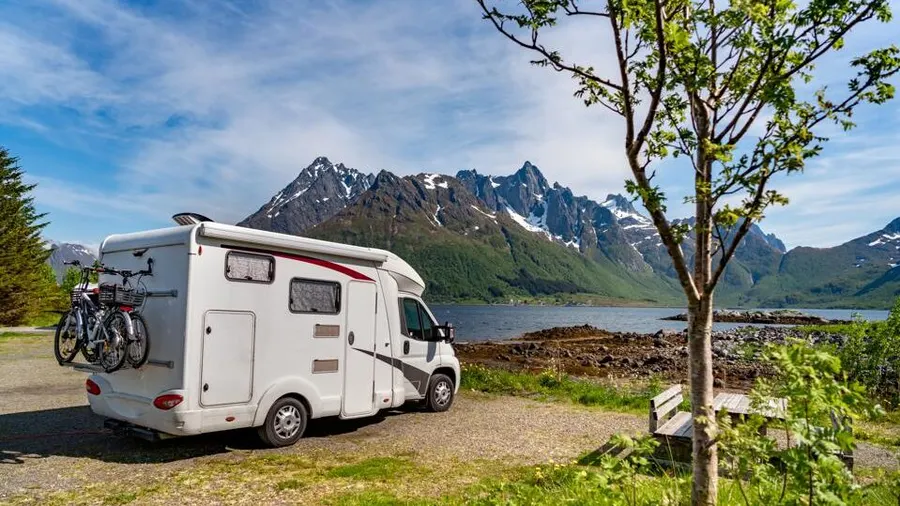Negotiating the price of a used RV can be a crucial step in ensuring you get a great deal on your purchase. With the right approach, you can leverage information, strategies, and negotiation techniques to secure the best possible price. Here’s a comprehensive guide to help you negotiate effectively when buying a used RV.
1. Do Your Homework
Research Market Values: Before you start negotiating, research the market value of the RV model you’re interested in. Use online tools such as RV Trader, NADA Guides, and Kelley Blue Book to get an idea of fair prices for similar models in your area.
Know the RV’s History: Obtain a vehicle history report using the RV’s VIN (Vehicle Identification Number). This report can reveal important information about any past accidents, title issues, or odometer discrepancies.
Understand the Seller’s Position: If possible, find out why the seller is selling the RV. If they are in a hurry to sell, they might be more willing to negotiate on price.
2. Inspect the RV Thoroughly
Identify Issues: Conduct a thorough inspection of the RV to identify any issues or needed repairs. Look for signs of wear and tear, check the functionality of systems and appliances, and assess the overall condition.
Use Findings as Leverage: Use the issues you find during the inspection as leverage in your negotiations. Pointing out needed repairs or maintenance can justify a lower offer and provide grounds for negotiating a better price.
Consider a Professional Inspection: For a more detailed assessment, consider hiring a professional RV inspector. An expert’s report can highlight potential problems and strengthen your negotiating position.
3. Start with a Reasonable Offer
Make an Initial Offer: Start your negotiation with a reasonable offer based on your research and the RV’s condition. Your initial offer should be lower than the asking price but within a range that reflects the RV’s market value.
Be Prepared to Justify Your Offer: Be ready to explain why your offer is reasonable. Use information from your research, the RV’s condition, and any issues found during the inspection to support your offer.
Show Interest but Remain Flexible: Express your interest in the RV, but also make it clear that you’re willing to consider other options if the price isn’t right. This can encourage the seller to be more flexible in their pricing.
4. Use Negotiation Tactics
Ask for Extras: If the seller is unwilling to lower the price, ask if they are willing to include additional items or services, such as a full tank of gas, an extended warranty, or new tires. These extras can add value to your purchase even if the price doesn’t change.
Negotiate in Person: If possible, negotiate in person rather than over the phone or via email. Face-to-face negotiations can be more effective and allow you to gauge the seller’s reaction and adjust your approach accordingly.
Be Patient and Polite: Approach the negotiation with patience and politeness. Being respectful and professional can create a positive atmosphere and increase the likelihood of reaching an agreement.
5. Be Ready to Walk Away
Know Your Limits: Set a maximum price you’re willing to pay before entering negotiations. If the seller is unwilling to meet your price or offer acceptable terms, be prepared to walk away from the deal.
Consider Other Options: Remember that there are many used RVs available on the market. If the negotiation doesn’t result in a satisfactory outcome, keep looking and consider other options that might offer better value.
Don’t Rush the Decision: Take your time to make an informed decision. Rushing the process can lead to missed opportunities or regret over the final price. Ensure that you’re comfortable with the price and terms before finalizing the purchase.
6. Finalize the Deal
Review the Contract: Once you’ve reached an agreement, carefully review the sales contract and any additional paperwork. Ensure that all agreed-upon terms and conditions are clearly outlined and that there are no hidden fees or charges.
Secure Financing: If you’re financing the RV, ensure that you have your financing in place before finalizing the purchase. This can help streamline the process and ensure that you’re ready to complete the transaction.
Confirm All Details: Double-check all details, including the RV’s title, registration, and any included extras or warranties. Make sure that everything is in order before completing the purchase.
Conclusion
Negotiating the best price on a used RV requires preparation, research, and effective negotiation tactics. By thoroughly inspecting the RV, making a reasonable offer, and using negotiation strategies, you can secure a great deal and ensure that your RV purchase is a successful one. With these tips in mind, you’ll be well-equipped to negotiate confidently and find an RV that meets your needs and budget.




